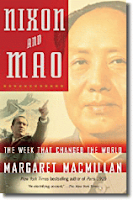Last week I asked what she was reading. Her reply:

The Acolyte by Thea AstleyBefore she became a bestselling novelist, Toni Jordan worked as a sales assistant, molecular biologist
I read this book every year or so, mostly when I’m lacking confidence in my own work. It’s a first person story told by Paul Vesper, the assistant/gopher/friend of a blind musician, Jack Holberg. It’s about the group of family and friends whose lives revolve around Jack’s genius, vulnerability and cruelty. It was written in 1972 but seems older to me; the style is very dated. It’s difficult to read. Each sentence is like a steak dinner. In lesser hands, this might be pretentious overwriting, but Astley makes it complex, intelligent and sharply satirical. The characters are vivid, but nowhere does she make it easy. We have to figure it all out. For example, this sentence explaining (?) that Paul is an orphan: ‘My parents two years ago debated the right of way unsuccessfully with a lavender cement-mixer and I can’t bear to see the house any more, not with its new Apex Club owner and his clutch of nose-picking children.’ The voice is incredibly tight and consistent and the meaning is layered. It’s as if every sharpened sentence could be expanded in to a novel of its own. I find it inspiring.
 , quality control chemist and marketing manager. She now lives in Melbourne, Australia, where she works as a freelance copywriter.
, quality control chemist and marketing manager. She now lives in Melbourne, Australia, where she works as a freelance copywriter.Read about Jordan's top ten flawed romantic heroines.
Toni Jordan's Addition was released at the start of the year in the U.K. and Australia. It will be released in the U.S. by Morrow in February 2009.
Among the praise for Addition:
"Toni Jordan has created such a real character in Grace that you are cheering her on, willing her to get to the top of the staircase, intact and unharmed. Jordan's voice is distinctive, refreshing and…her debut novel is juicy and funny…this is a gem."Read more about Addition at the publisher's website.
—Sydney Morning Herald
--Marshal Zeringue
















































